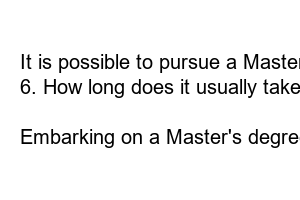스승 찾기
Title: Find a Master in English: Unlocking Your Language Potential
Introduction:
Are you passionate about the English language and eager to enhance your proficiency to the master’s level? If so, you’re in luck! In this blog post, we will guide you through the process of finding the perfect Master’s program in English and help you embark on a fulfilling academic journey.
1. Why Pursue a Master in English?
Unlock limitless opportunities by pursuing a Master’s degree in English. With an advanced understanding of the language, you can explore various career paths, such as teaching, publishing, or even becoming a professional writer. A Master’s degree also signifies expertise and opens doors to higher positions and higher salaries.
2. Researching Your Options: Where to Start
Begin by researching reputable universities and colleges offering Master’s programs in English. Browse their websites, read course descriptions, and familiarize yourself with faculty profiles. Look for institutions that align with your academic interests, career goals, and preferred learning methodology.
3. Essential Admission Requirements
To gain admission to a Master’s program in English, you’ll typically need to provide a completed application form, a statement of purpose, letters of recommendation, and your undergraduate transcripts. Some institutions may require GRE or TOEFL scores. Pay close attention to deadlines and make sure to complete all requirements well in advance.
4. Choosing the Right Specialization
English offers a rich tapestry of specializations, allowing you to focus on areas such as linguistics, literature, creative writing, or cultural studies. Consider your interests, strengths, and long-term goals when choosing your specialization. Opting for a field that excites you will enhance your learning experience and boost your career prospects.
5. Financing Your Master’s Degree
Financing your Master’s degree is an essential consideration. Look for scholarships, grants, and assistantships offered by universities, as well as external funding opportunities. Additionally, explore the possibility of part-time work or seeking financial aid. Remember that investing in your education will reap long-term rewards.
6. Stepping into the Classroom: What to Expect
Once accepted into a Master’s program, prepare yourself for an exciting and challenging academic journey. You will engage in stimulating discussions, conduct research, and produce scholarly work. The program may include seminars, presentations, and the opportunity to collaborate with seasoned professors, inspiring peers, and guest speakers.
FAQs:
1. Are there online Master’s programs in English?
Yes, many universities offer online Master’s programs in English, providing flexibility for busy individuals or those residing in remote areas.
2. Can I pursue a Master’s degree even if my undergraduate degree is in a different field?
Yes, it is often possible to pursue a Master’s in English even if your undergraduate degree is in a different field. However, you may need to complete additional prerequisite coursework.
3. Is it necessary to have a bachelor’s degree in English to pursue a Master’s in English?
No, it is not necessary to have a bachelor’s degree in English to pursue a Master’s in English. However, having a strong foundation in the language may be beneficial.
4. Will a Master’s in English guarantee a teaching position?
While a Master’s in English can enhance your teaching prospects, it does not guarantee a teaching position. Additional qualifications, such as teaching certifications, may be required depending on your desired career path.
5. Can I pursue a Master’s in English while working full-time?
It is possible to pursue a Master’s in English while working full-time, although it may require careful time management and dedication to balance both commitments effectively.
6. How long does it usually take to complete a Master’s in English?
A Master’s in English program typically takes two years to complete full-time, although the duration may vary depending on the institution and the student’s schedule.
Summary:
Embarking on a Master’s degree in English allows you to unlock your language potential, explore diverse career opportunities, and gain expertise in an ever-evolving field. By thoroughly researching your options, understanding admission requirements, choosing the right specialization, and exploring financial aid, you can set yourself on a rewarding academic journey. Remember that a Master’s degree in English is an investment in your future, enabling you to make a lasting impact in the world of language and literature.

